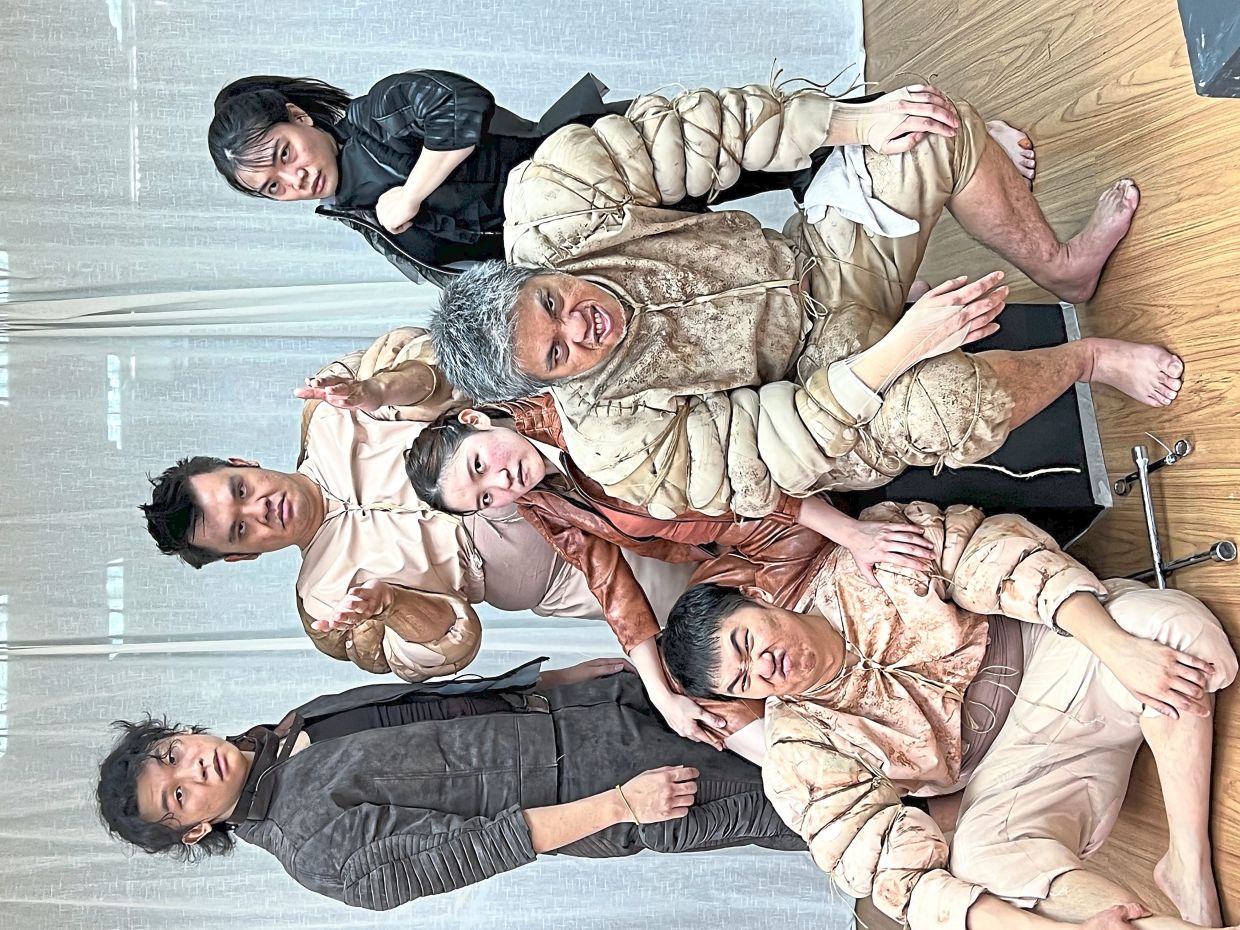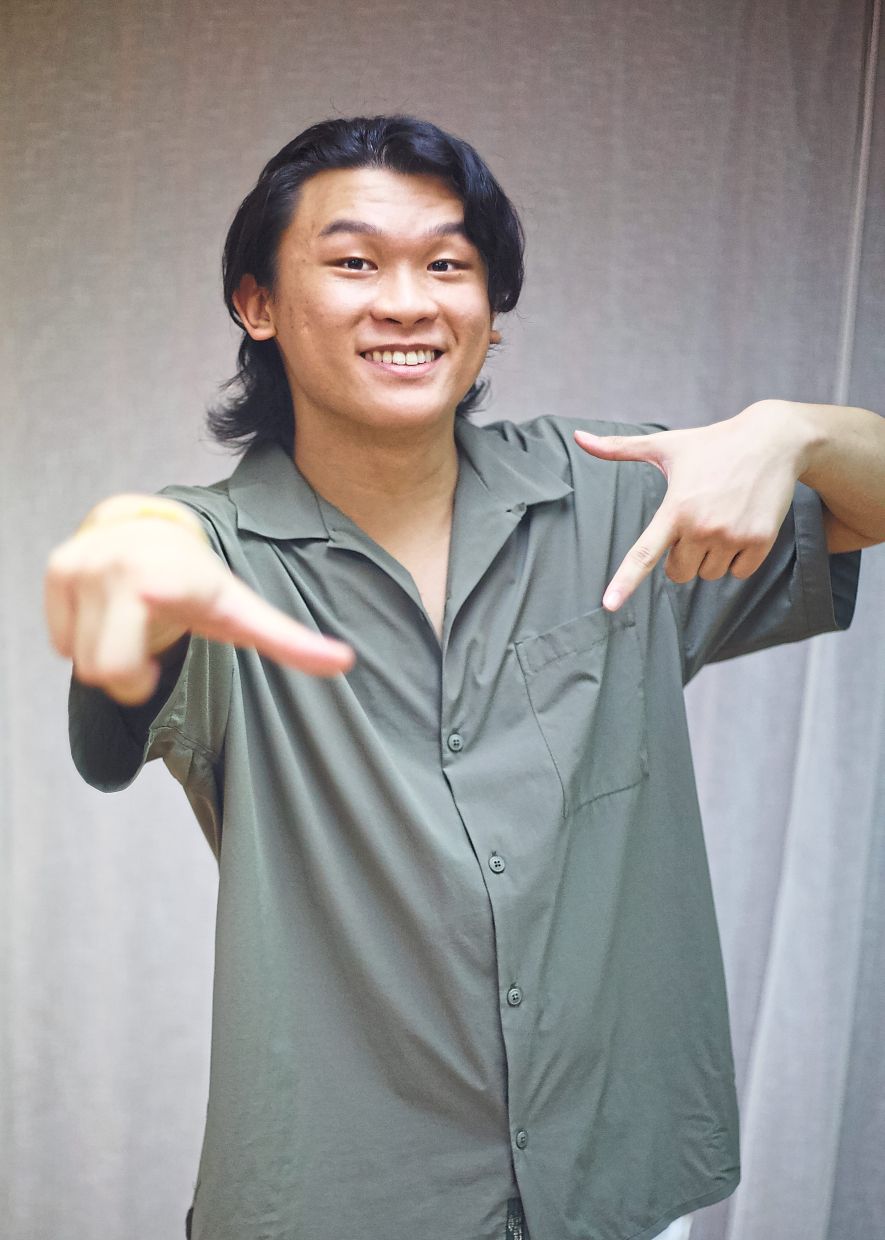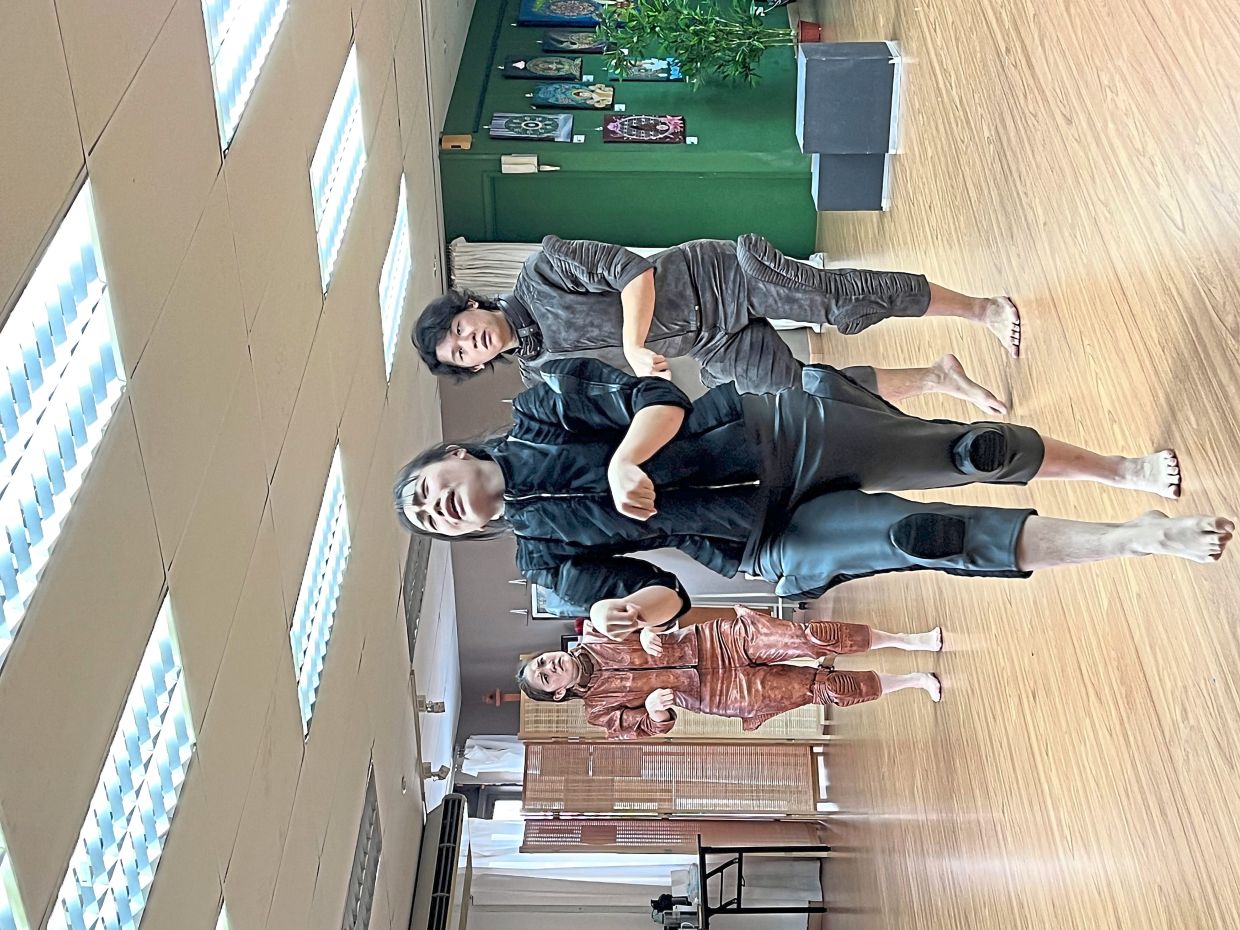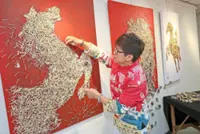In 1945, British author George Orwell published the literary classic Animal Farm, which was his first work that consciously wove political intent with artistic purpose, meant as a mirror held up to power, greed, and the seductive comforts of conformity.
Eighty years on, Orwell’s warning has not faded. Animal Farm persists as a global constant, with film adaptations, countless stage versions, translations, and reinterpretations across continents. The fable refuses to grow old – a testament to the many times history repeats its script.
It’s this world that director Loh Kok Man, 53, revisits and reimagines in his restaging of Animal Farm, first presented in 2008.
Loh’s Pentas Project Theatre Production joins forces with W Production for a Mandarin-language adaptation of Animal Farm, showing at Pentas 2, KLPac from Oct 30 to Nov 2. The show will feature English subtitles.
Over the years, he has returned to this work four times, once in a 2013 edited version, each staging offering a renewed perspective.
Loh recalls that his first encounter with Animal Farm in the early 2000s barely moved him.
“I thought it was interesting, but I didn’t have a strong feeling towards it,” he admits in a recent interview.
The turning point came after watching a Wild Rice production of this Orwell work in Singapore a few years later.
“That shocked me. Suddenly, I felt the story was very strong and very relatable to our society, and to myself.”
Loh bought the book, read it, and was gripped. Soon after, he decided to stage Animal Farm in Mandarin, opening it up to Malaysia’s Chinese-speaking audiences.
“Many people do not think too much about politics. They think about work, survival, and family. But I hope theatre can make them think about the society they live in. Entertainment is important, but reflection is more important,” says Loh.
An artistic shift
When he staged it in 2008, Animal Farm marked a shift in his artistic practice. Known for his physical theatre, Loh wanted to create something text-driven, something that spoke directly to Malaysian audiences accustomed to narrative and realism.
“Physical work can feel too abstract,” he says. “I wanted to meet audiences where they are, then slowly push them to think more.”
This restaging, 17 years later, arrives with a quieter urgency.

Loh returns to Animal Farm not as Snowball, the revolutionary he once identified with, but as Old Major, the dreamer passing his torch to a new generation.
“Before, I wanted to change my society,” he says. “Now I want to help young people see they can change theirs.”
For Loh, Animal Farm is less about revolution than reflection.
“When 100 people come to see a show, they’ll see 100 different reflections.”
It’s a philosophy that feels distinctly Malaysian. In a country divided by language, education, social class, religion, and cultural experience, no audience ever sees quite the same thing.
“(It's) different people, different backgrounds, different ways of thinking. That’s what makes the mirror important. Everyone stands in front of it and sees something different, and that is fine.”
Still, some things have not changed.
“When I did Animal Farm in 2008, Malaysia was different. Now we have new governments, new slogans, but many things are still the same.
“We say the system is broken, but the system is made of people. If the people don’t change, nothing changes. Power is not the problem. The problem is the person holding it.”
It’s a simple truth, but one that theatre still seems uniquely able to voice: awareness begins with discomfort.
“Life shouldn’t always be easy,” says Loh. “When things feel difficult, you start to think. That’s when change begins.”
A younger voice
Under the production of William Yap, the ensemble brings together Anthony Lee, Seng Soo Ming, Zizi Hau, Yuanci Ng, JunYap Won, and Jerry Pang – a cast that strikes a fine balance between youthful energy and seasoned experience.
For Pang, the youngest member of the cast and a recent theatre school graduate, the upcoming shows marks both his professional debut and his first (show) in Mandarin.
“I’d always heard about Animal Farm, but never read or watched it. It felt like a myth in theatre circles, something so well known that it’s almost untouchable,” says Pang, 23.

“After reading the script, I finally understood why it’s considered a classic. It’s such a clear reflection of society, how people surrender their voice to power, and how easily that cycle repeats.”
Pang plays Boxer, the strong, loyal horse whose blind faith and hard work sustains the farm.
“Boxer does not question anything. He just believes his leaders and keeps going, even when things clearly go wrong. People might think he’s foolish, but I think he’s deeply human. There’s something heartbreaking about someone who blames himself instead of the system.”
Portraying Boxer required Pang to work against his instincts.
“Kok Man kept reminding me not to be too smart,” he says with a laugh.
“I tend to analyse everything, but for Boxer, I had to think simply, take things at face value, and just do. It reminded me of when I was younger, when I didn’t question authority much either.”
In rehearsals, the story’s relevance kept striking him.
“Power keeps looping back on itself. The pigs start out with good intentions and end up becoming exactly what they fought against. It’s a mirror of reality.”
What he takes away from the experience is not just the discipline of theatre-making, but it's quiet power.
“For me, Animal Farm shows that art can still speak truth, even when people can’t. We might not always say things directly, but the meaning is there. It’s layered, complex, but it is also alive, and ready for anyone willing to see it,” says Pang.
The sound of power
If Animal Farm is a fable about power, then the music in this new production is the pulse of that power.
Music designer and live performer Alu8 carries the weight of breathing, tightening and sometimes breaking that power, alone.
“At first, I was very happy and honoured,” says Alu8.

“Then immediately, I started to feel the pressure because Kok Man told me I’d be the only musician. I had to figure out how one person could complete the music for the entire production. I was also worried that the music might be too sparse – that was the real challenge.”
In a story where oppression and fear creep through every corner, Alu8’s score becomes a sonic language of tension.
“For oppression, I use the electric guitar with distortion. Sometimes I layer it up with other sound effects. For collective fear, I go for very low-pitched, low-range drums like floor toms or tom drums,” says Alu8.
In this production, he adds, music primarily defines and conveys the emotional and political atmosphere of the farm.
"The music largely represents the forces of oppression and fear within the animal society,” says Alu8.
“Conversely, silence can be interpreted as the absence of the animals’ free voices, or the chilling moments under totalitarian control. When the dominant, modern rock sound recedes, the silence that remains carries a heavy sense of fear rather than peace.”
In this Animal Farm production, every sound, shadow, and gesture becomes a reminder that power always finds new disguises, and that art, stubbornly, must keep unmasking them.
Animal Farm is showing at Pentas 2, KLPac from Oct 30 to Nov 2. More info here.





